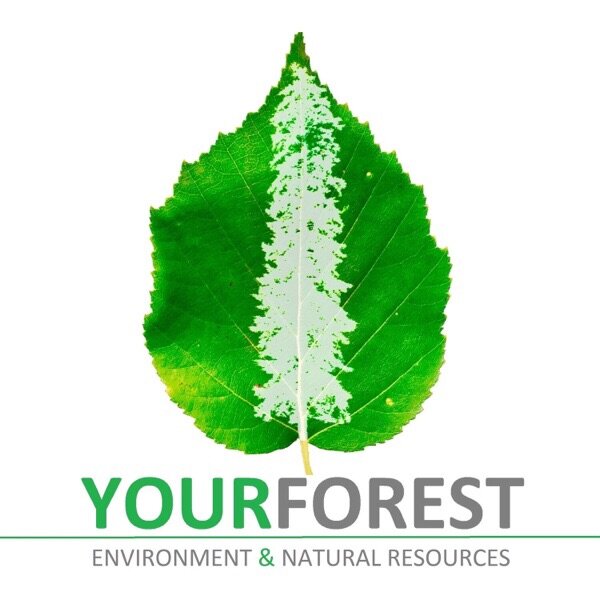As land stewards, we spend most of our time discussing the hard science. If we take this action on the landscape how will that affect everything else? For today’s episode, we are stepping out of our comfort zone and into the mysterious and intimidating world of people. How do people’s views and relationship to nature change how we manage it? If we could adjust society’s perspective, how would that shift the outcomes of environmental management? Ultimately, how does sociology change things?
Episode highlight
John Parkins speaks about the role of society in forestry and how meaningful engagement with indigenous communities is the future of land management.
Resources
John Parkins’ Profile: https://apps.ualberta.ca/directory/person/jparkins
fRi Research: https://friresearch.ca/sites/default/files/HLP_2019_03_EBM%20Dialogue_Paper_Final.pdf
Sponsors
West Fraser: https://www.westfraser.com/
GreenLink Forestry Inc.: http://greenlinkforestry.com/
Damaged Timber: https://www.damagedtimber.com/
Giveaway
Enter YourForest10 at checkout at the Damaged Timber store for a 10% discount!
Quotes
8.36 - 8.51: “We often think that... we can... get out there in the world when we are young and… we can change it, and I guess I realized that… changing the world is a lot more challenging than we think but... we also can make our own contributions in one way or another.”
17.16 - 17.27: “Pretty much every problem we are dealing with ultimately is a social problem... because .. [there] wouldn't be a problem unless humans came along and decided it was a problem.”
20.46 - 21.06: “A lot of times, the… controversies that we are dealing with, at the heart of it, involve scientists themselves who are disagreeing with each other... and they are doing that because they are looking at different elements of a very complex world out there and measuring things in different ways.”
1.02.18 - 1.02.29: “That’s, I think, a part of the decolonization process - we need indigenous leaders in key positions of leadership, we need indigenous leaders in our industries, we need them in the government, we need them at the university.”
Takeaways
“It was less about me choosing sociology and more about sociology choosing me” (4.25)
John worked in East Africa for 2 years and felt inspired to work internationally in poverty alleviation and rural development, which led him to develop an interest in issues around sustainability. He did a Master’s in Rural Sociology from the University of Alberta and then worked on social issues in forestry at the Canadian Forest Service. He now works in the Department of Resource Economics and Environmental Sociology at the university.
Society and forestry (10.42)
John explains that sociology is the study of groups and group experience, using social facts or contexts to explain social problems. Environmental sociologists are interested in the interaction between society and the natural world, bringing environmental variables and factors into an explanation of human behaviour. Environmental sociology in forestry explores the forest-society relationship through forest-based communities, community sustainability studies and the like.
Every problem is a social problem (16.21)
John laments that many people in the resource sector don’t think about social contexts. While the scientific method can be used to achieve breakthroughs, the biggest challenge in this work is conflict resolution amongst competing views of disagreeing social groups with varied scientific positions. He cites the example of the lack of consensus on the definition of Ecosystem-Based Management (EBM) in Alberta.
Find a middle path or find the right answer (25.03)
John believes that to move forward from the conflict of competing scientific views, we need to find a middle path or experiment to find the right answer. Even though the government fears experiments going badly, trying small experiments on small blocks of land may uncover new possibilities. During his Ph.D., he attended public advisory committee meetings which asked the local forestry company to set aside some land as the control for the experiment to proceed.
Delinking of industry and community (31.55)
An example of a successful experiment in Canada on the social context of forestry is British Columbia’s 100+ community forests initiative. Communities take a long lease term on crown land, and through a local community board, manage the forest landscape based on their values, vision and benefits the community receives from doing so. Communities get to have a say in how industry uses the forests too.
Meaningful engagement with indigenous communities (42.52)
John highlights the need to have a meaningful form of engagement with indigenous communities. Meaningful consultation could mean developing meaningful relationships with trust, collaboration and shared values. However, John supports rooting the conversation in a decolonization context where indigenous communities have control over the decisions made for the land. However, not all indigenous communities agree with the consultation guidelines today.
Indigenous land management (47.40)
John believes indigenous consultation must go beyond dialogue to equity ownership in land and encourages experimentation to find a successful way to invite indigenous stakeholders as equal players in landscape management. He also emphasizes the need to manage the multiple values in forestry, factoring in conversations around indigenous forestry, decolonization in forestry and economic development through forest management.
Forestry’s way forward (1.01.34)
The University of Alberta is working to secure funds for a new faculty position in indigenous forestry. John hopes to see indigenous leaders drive the conversation for indigenous forestry and create the change they wish to see. Academic literature on indigenous management of conservation areas shows that such areas have better ecological values, and he believes that should be the way forward for forestry.
If you liked this podcast, please rate and review it, share it on Instagram and Facebook and tag a friend, and send your feedback and comments to yourforestpodcast@gmail.com.

